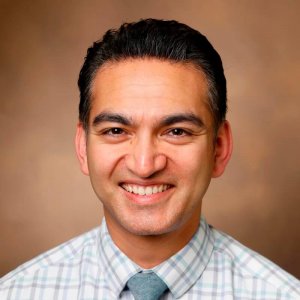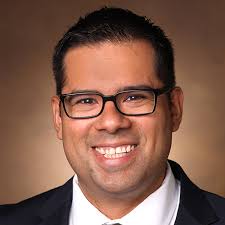For training grant directors, you are welcome to personalize these descriptions by substituting the name of your program for our resource names (e.g., “[Program Name] Seminars” instead of “Edge Seminars”).
At the end is a list of commonly requested percentages and numbers relating to career development at Vanderbilt.
Edge for Scholars at Vanderbilt provides an integrated career development program for all clinician-scientists, regardless of their scope of research, and for PhD scientists engaged in translational or clinical research. We are the home of training programs such as those proposed in this application to support CTSA KL2 scholars and TL1 trainees and overall serve the needs of more than 110 career development awardees and 190 pre- and postdoctoral trainees working in translational science. We coordinate most of the educational and career development activities described in the grant that are outside traditional graduate programs. They include Edge for Scholars Career Development Seminars, Annual Translational Science & Research Forum, Grant Pacing Workshops, Funded Grants Library, Mock Study Section, and Flight Tracker. We constantly collect and respond to feedback from trainees, early career faculty, and mentors. We compile data about our outcomes, examine them in the context of national outcomes data, and strategize, based on our local needs and national best practices, about how to implement a continuously evolving panel of exceptional resources to promote the careers of all our scientists across the arc of their careers.
Edge for Scholars Funded Grants Repository. This protected grants library provides exemplars of successful grantsmanship. The repository includes summary statements and resubmissions from over 510 grants that span the range of translational research from drug targeting to community interventions and from epidemiologic investigations to qualitative studies. We host 163 R01s, along with 45 R21s and R03s, 9 VA Merit awards, 8 Department of Defense awards, and 52 other grants such as R61s, R34s, R35s, and loan repayment awards. Our 176 K awards include various K01s, K08s, K23s, and 6 K24 mid-career mentoring grants, as well as 6 VA CDAs, and foundation awards such as AHA career development and Doris Duke Foundation Clinical Scientist Development awards. As well, we host 24 F30s, 22 F31s or equivalent foundation predoc fellowships, 11 F32s, and 2 F99s. The library includes 12 examples of successful NIH loan repayment applications and 12 examples of large institutional grants such as U01s, as well as 7 PCORI grants.
Grant Pacing Workshops. This program weds introduction to project management skills to the steps required to produce the varied components required for successful grant application. Groups of no more than 18 investigators convene for two half-day workshops 16 and 14 weeks in advance of the coming federal grant deadline. In the first session, participants learn strategies for developing Specific Aims, enhancing grants with tables and figures, and refining grant components from the reviewer’s perspective, with examples from funded grants. The second session takes place 1–2 weeks later and has participants learn and apply skills for creating project timelines, identifying dependent components, and mapping “swim lanes” for major grant sections (e.g., budget and justification, scientific text, letters, human participants) to map process flow and contingencies. Participants build resources such as Studios and Edge Reviews into their timelines.
Internal Study Section (Edge Review). For over a decade our CTSA-supported internal grant review process has followed NIH study section format. Researchers submit their applications for review six weeks prior to NIH due dates. Following review, investigators receive summary statements in the NIH format as well as a video file of the session. Reviews include 1) all three major NIH standing submission deadlines as well as the three HIV/AIDS dates, 2) all K and R awards for all faculty who wish to use the service, as well as F awards for graduate students and postdocs, and 3) assignment of reviewers through use of a database that catalogues content and methods expertise of 427 federally funded investigators. Applicants for Edge Reviews complete a checklist of content and methods related to their grant for review, and we use optimization software to obtain an ideal match for first, second, and third reviewers. Between May 2011 and January 2025 (most recent Edge Review date for which grant would have known award), 55% of the 649 submissions reviewed have been funded.
Flight Tracker. We built Flight Tracker to meet a need for evidence-based career development data that track outcomes for scholars. The REDCap-based Flight Tracker software accesses many federal data repositories to track items like funded grants and publications for individual scholars, with the ability to also track internal resource use, grant submissions, and promotions. It was first shared in 2020 to help other CTSA hubs collect data on trainees and scholars across their careers and to identify determinants of success. We have shared the REDCap External Module with over 130 Vanderbilt projects tracking over 8,000 scholars. Externally, over 60 institutions use Flight Tracker in more than 350 projects, tracking over 70k scholars. It is the single one-stop shop for tracking scholar outcomes at multiple levels (both T and K trainees) for the CTSA consortium.
Flight Tracker features
- Gathering data via application programming interface (API) from PubMed, NIH RePORTER, NSF Grants, iCite (bibliometrics for Relative Citation Ratio), ORCID, and ERIC on a weekly basis and integrating these data into each scholar’s record;
- Reporting and graphics for quick, insightful analysis including, for example, T-to-K-to-R conversion rates, publication reports, and global impact of papers;
- Integration with REDCap to provide custom reporting;
- Tracking and statistical analysis of institutional resource use, such as workshops;
- Scholar Portal to allow scholars to access their own data and visualizations for promotion materials, career development analyses, and job applications.
Workshop and Other Opportunities. We provide:
- Manuscript Sprints, which provide peer accountability groups and review for authors to push toward completion of a manuscript within six weeks.
- Grant Writing Training is offered online once per year by an experienced NIH grant consultant and scientific editor. The curriculum includes six video lessons covering planning, strategy, and writing techniques; an online community for daily support and accountability; and bonus activities.
- Annual Translational Science & Research Forum features more than 10 plenary talks by investigators. Speakers are former Vanderbilt and Meharry K awardees who have recently received R01 or equivalent funding. A poster competition introduced in 2016 regularly draws more than 90 abstracts each year.
- Membership in the Newman Society is granted to all current K or equivalent awardees at Vanderbilt and Meharry (n=130). All members attend a monthly career development seminar. K alumni also take advantage of these forums. Topics for recent seminars and workshops include avoiding authorship woes, establishing an academic brand, leading teams, communication skills, negotiation, readiness for R award, and stress management. Many of the topics also carry Responsible Conduct of Research credit hours.
- Edge Career Development Seminars bring together trainees with translational career aspirations from more than 30 T32s (each program identifies two or three trainees), clinical research fellowships, the MPH, and graduate programs. Both pre- and postdoctoral trainees attend. Those moving towards K applications also take advantage of these forums. Topics include skills in time management, communication, laboratory and personnel management, negotiation, authorship, and stress management aimed at enhancing the career development of new scientists. Many of the topics also carry responsible conduct of research credit hours. The goal is to provide formal career development resources, and an informal peer group, for all scientists early in their research careers.
- Early Career Coaching Program offers 6–12 months of professional career coaching by a certified executive/professional coach who has worked extensively with the VUMC Department of Medicine and School of Management. For 5–10 early career faculty who have recently received their first R01 or equivalent grant, the coach helps with defining career goals, assists in the tracking the progress of objectives, unlocks new levels of self-awareness, and ultimately enables each individual to reach their career goals at a key career transition point, helping faculty expand their vision from one grant to a multi-grant research program
- Studios allow investigators a 1.5-hour meeting with a panel of expert consultants coordinated by VICTR staff. Scheduling, distributing materials in advance, providing a moderator, and soliciting feedback from participants is coordinated for the scholar so that s/he can best focus on preparing for the session and absorbing the guidance obtained from the review and advice on specific aspects of the research. Focus varies based on the needs of the researcher and includes hypothesis generation based on novel findings, review of aims and methods, critique of full proposals, manuscript review for high profile publications or contentious topics, troubleshooting research underway, and assessment of translational potential.
- Biostatistics Clinics are provided through the CTSA core and provide daily free sessions to which researchers can bring questions about analyses, whether it’s crunching numbers, designing new studies, applying for grants, or just theorizing. Investigators at any level may bring data or specific challenges for discussion with the biostatistics faculty. Often very practical assistance is provided such as: demonstration of analysis techniques with the data in question, new connections with consultants, reframing of study design, or derivation and discussion of power calculations.
- Pilot Funding allows researchers to request up to $100,000 in funding for pilot projects, with smaller amounts being granted within days to ensure no loss of momentum. In this funding year, 120 awards were given (success rate of 74%), 98 or 81.7% of which were to early career researchers.
- R01 Writing Group convenes online weekly for 3-6 weeks three months prior to major NIH deadlines. Groups provide peer accountability and review.
- Edge Conversations occur quarterly and bring together informal groups of mentors and mentees to discuss books from business, psychology, and other genres selected for “actionable intel” on career development topics. Moderators have included Dr. Hartmann, Dr. Reed Omary, and Dr. Benjamin Tingey of Atrium Health. We took these local book clubs both virtual and national this year with the launch of the Edge Conversations Facebook group, which follows the local schedule and has over 100 members. Examples of selections include Whistling Vivaldi by Steele, Black Death at the Golden Gate: The Race to Save America from the Bubonic Plague by Randall, Multipliers by Wiseman, Atomic Habits by Clear, Getting to Yes by Fisher and Ury, Collaboration by Hansen (a Harvard Business Press offering), Resonate: Presenting Visual Stories that Transform Audiences by Duarte, Resilience by Greitens, and Getting Things Done: The Art of Stress Free Productivity by Allen.
- Analog Lending Library provides copies of books for Conversations as well as for general use. The library stocks more than 200 titles and can be accessed at seminars or via campus mail. Topics range from time management and productivity to writing skills, leadership to creativity, and more.
- Kaizen offers rigor, reproducibility and transparency education in a gamified setting. Scholars from predoc to early career are placed on teams and collect points and badges by reading assigned articles and answering questions about the reading. The University of Alabama at Birmingham’s CCTS developed the application and we piloted it in 2019 with 48 early career scholars from around the Vanderbilt campus. 100% of those who evaluated the platform agreed it was an attractive way to document the requirement for this type of learning, and many suggested other areas in which it could be used, such as responsible conduct of research, IRB requirements, and statistic concepts. Along with UAB, we launched a national game in February 2020, which promoted and recruited over 150 players via Edge for Scholars’ thriving social media outlets.
- Mentee-Mentor Agreement uses an interactive online approach to initiate and revisit the important conversations that are building blocks for a solid mentee-mentor relationship at any career stage. A mentee answers questions to help align expectations like shared goals, milestones, resources, and communication plan in order to frame discussions with a mentor. Mentee-mentor pairs are prompted to adjust the agreement on a regular basis.
- Mentorship Training Directory allows directors of training grants to track faculty participation in formal mentor training. Faculty mentors can use the directory to find training opportunities including workshops held on campus, virtual courses, and asynchronous training. They are prompted to log their completion and generate a transcript, to which they can add additional, custom trainings. The Mentorship Training Directory is part of a suite of mentoring resources from Edge for Scholars including our customizable Mentee-Mentor Agreement and Flight Tracker, software to track career outcomes.
- EFS Insights presents an organized, curated collection of articles that are freely available to scholars and focus on practical advice to academic biomedical researchers across the full career arc, with special emphasis on the needs of trainees and early career investigators. Example topics covered include expanding one’s funding portfolio, developing a career timeline, writing in plain language, responding to rejection, and giving a chalk talk. The EFS Insights website also serves as a reservoir for key information covered in seminars and trainings. This allows mentors and peers to refer others to key content they may have missed at in-person events.
COMMONLY REQUESTED NUMBERS
Current number of K/CDA awardees at Vanderbilt: Fluctuates as grants begin and end, but generally around 110
K-to-R conversion percentage for Vanderbilt: Also fluctuates as grants are awarded, but typically sits at about 63%. Current n=417. Excludes those still on a K or similar award.
Conversion from internal K awards (VFRS) and KL2 to extramural awards:
| Extramural Awards since 2001 (n=144)* | |
| Award Type | Number of Scholars (%) |
| Extramural K/equivalent | 93 (64.6%) |
| R01/equivalent only (no extramural K) | 31 (21.5%) |
| Total receiving extramural funding | 124 (86.1%) |
* Excludes those currently on internal K or KL2.
For those who have reached the end of their extramural K or who went straight to R01, the percentage who have received an R01 or equivalent is 95.% (n=81).
Edge Review success rates:
Between May 2011 and January 2025 (most recent Edge Review date for which grant would have known award), 55% of the 649 submissions reviewed have been funded.
Email the Rebecca Helton at rebecca.helton@vumc.org
Assistant Professor
- K23
Research Assistant Professor
- R03
Assistant Professor
- R01 Recipient
Research Assistant Professor
- DOD




